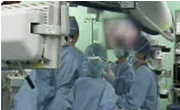Purpose: This study aimed to identify the relationship between nursing competency, professional self-concept, and job satisfaction of outpatient oncology nurses caring for cancer patients and to identify the influencing factors on job satisfaction. Me...
http://chineseinput.net/에서 pinyin(병음)방식으로 중국어를 변환할 수 있습니다.
변환된 중국어를 복사하여 사용하시면 됩니다.
- 中文 을 입력하시려면 zhongwen을 입력하시고 space를누르시면됩니다.
- 北京 을 입력하시려면 beijing을 입력하시고 space를 누르시면 됩니다.

암 환자를 돌보는 외래간호사의 간호역량과 전문직 자아개념이 직무만족에 미치는 영향 = The Influence of Nursing Competency and Professional Self-concept of Outpatient Nurses Caring for Cancer Patients on Job Satisfaction
한글로보기https://www.riss.kr/link?id=A109457122
- 저자
- 발행기관
- 학술지명
- 권호사항
-
발행연도
2024
-
작성언어
Korean
-
주제어
Ambulatory care ; Clinical competence ; Job satisfaction ; Neoplasms ; Self concept ; 외래간호 ; 임상 역량 ; 직무 만족 ; 암 ; 자아개념
-
등재정보
KCI등재,ESCI
-
자료형태
학술저널
- 발행기관 URL
-
수록면
165-172(8쪽)
- 제공처
-
0
상세조회 -
0
다운로드
부가정보
다국어 초록 (Multilingual Abstract)
Purpose: This study aimed to identify the relationship between nursing competency, professional self-concept, and job satisfaction of outpatient oncology nurses caring for cancer patients and to identify the influencing factors on job satisfaction. Methods: This study was a cross-sectional study to determine the relationship between nursing competency, professional self-concept, and job satisfaction of outpatient oncology nurses. Data were collected from 104 outpatient oncology nurses at a tertiary hospital in Seoul, South Korea, using a self-report questionnaire. Descriptive statistics, Pearson correlations, and multiple regression analyses were conducted using SPSSWIN 27.0. Results: The results showed that the nursing competency mean was 3.89±0.46 out of 5, professional self-concept mean was 2.84±0.36 out of 4, and job satisfaction mean was 3.88±0.57 out of 5. Job satisfaction was significantly positively correlated with nursing competency (r=.70, p<.001) and professional self-concept (r=.63, p<.001). Multiple regression analysis revealed that nursing competency (β=.51, p<.001) and professional self-concept (β= .31, p=.001) were significant predictors of job satisfaction and had an overall explanatory power of 54%. Conclusion: In this study, professional self-concept and nursing competency were identified as influential factors in the job satisfaction of outpatient oncology nurses caring for cancer patients. Based on the findings of this study, it is necessary to develop a program to increase professional self-concept and enhance nursing competency to improve the job satisfaction of outpatient oncology nurses.
동일학술지(권/호) 다른 논문
-
대장암환자 배우자의 성별에 따른 돌봄 부담감, 부부 친밀감 및 성생활 정보요구도 차이
- 대한종양간호학회
- 김슬아
- 2024
- KCI등재,ESCI
-
간호·간병통합서비스병동 암 환자 및 보호자의 입원 경험: 탐색적 질적연구
- 대한종양간호학회
- 임사라
- 2024
- KCI등재,ESCI
-
- 대한종양간호학회
- 김성해
- 2024
- KCI등재,ESCI
-
위절제술을 받은 암 환자의 가족지지와 건강증진행위가 삶의 질에 미치는 영향
- 대한종양간호학회
- 양은희
- 2024
- KCI등재,ESCI




 DBpia
DBpia






